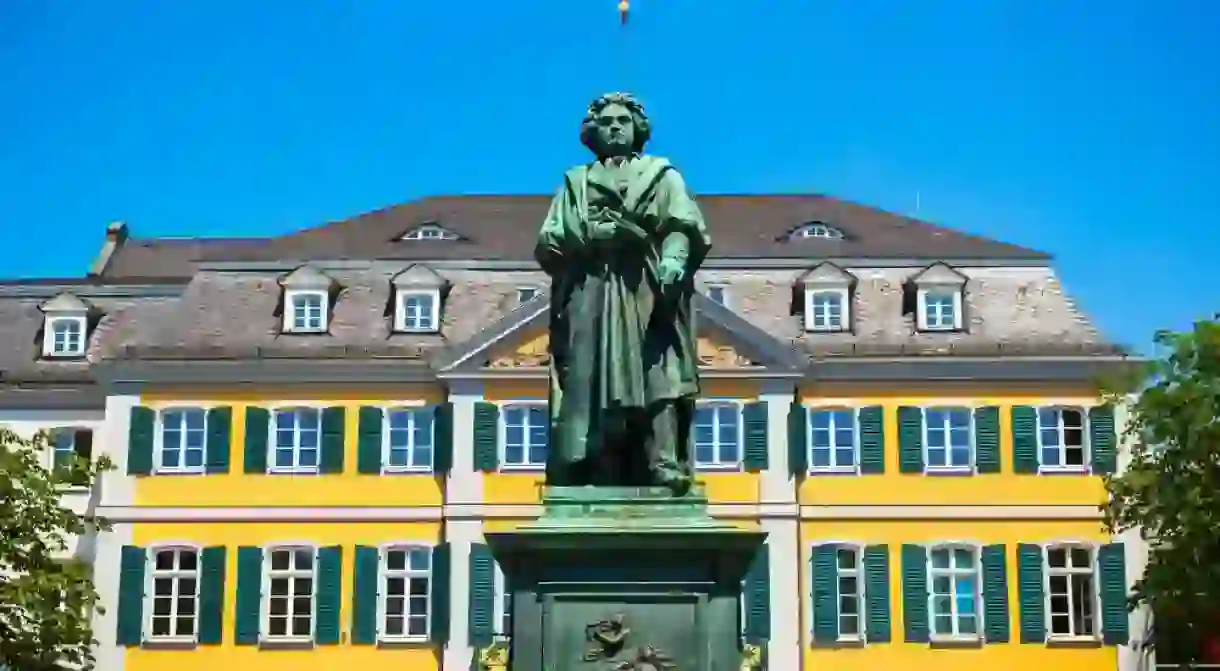The Top Things To Do And See In Bonn, Germany

Bonn is one of the oldest cities of Germany and used to be the capital city of west Germany until the reunification of the country. The birthplace of Beethoven hosts some of the most important educational institutions in Germany, while apart from its historical significance and cultural heritage, it’s also a place of natural beauty, settling on the shores of the river Rhine.
Bonn Minster
Bonn Minster is a magnificent Roman Catholic minor basilica with a rich history. It was built between the 11th and 13th centuries, first as a Roman temple and then it was used as a Christian church. According to legend, the martyrs Saints Cassius and Florentius were beheaded for their religious beliefs at the current location of the Bonn Minster.
See the best of Bonn with this hop on, hop off bus tour!

Museum Koenig
One of the most important natural history museums in Germany was established in 1934 and was named after the German naturalist Alexander Koenig, who donated his collection of specimens to the institution. Museum Koenig focuses on theoretical research and educational promotion of the wide range of species on earth, using interesting and interactive exhibitions.
Poppelsdorf Palace
Poppelsdorf Palace is a wonderful Baroque building in Bonn and nowadays is part of the University of Bonn, situated in the heart of the city. Come along to take pictures of this impressive and historical building and its endless gardens.
Deutsches Museum Bonn
The Deutsches Museum Bonn, branch of the Deutsches Museum in Munich, has numerous scientific and technological masterpieces on display, plus great representations of the scientific and technical evolutions that have been awarded with Nobel Prizes.
Kunstmuseum Bonn
This museum of modern art was founded in 1947 and focuses on the Rhenish expressionism and post-war German art, hosting a rich collection as well as temporary thematic exhibitions.
The Arithmeum
As you have figured out by its name, the Arithmeum is a mathematics museum that operates within the framework of the University of Bonn. It was founded by Bernard Korte and aims to promote the learning and understanding of scientific and technological knowledge, as well as the familiarization with the interaction of science with art and the symbolic impact of architectural design – the Arithmeum building’s steel-glass facade is a true reflection of this fact, actually representing the transparency of science.
Beethovenhalle
It goes without saying that the birthplace of Beethoven has a place of special artistic significance dedicated to the great musician. Beethovenhalle is the place of residence of the Beethoven Orchester Bonn and hosts concerts, guest appearances, conferences, fairs and carnival shows. Check out its program and visit it for a quality cultural experience.

LVR-LandesMuseum
The Rheinisches Landesmuseum Bonn is one of the oldest museums in the whole country and is run by the Rhineland Landscape Association. History buffs will be fascinated by the important ancient busts and figures, which date back to the period of the Roman empire, as well as by the rich collection of prints, photographs, coins and medallions. The museum organizes frequent thematic exhibitions to bring its visitors in touch with historical periods.













